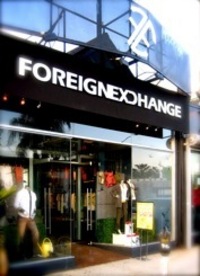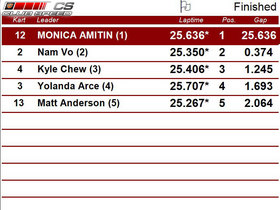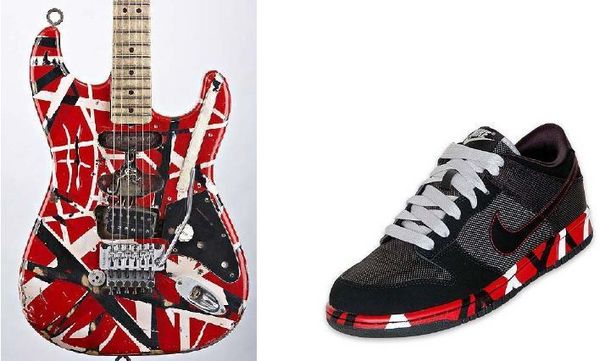 San Jose, CA – A jury awarded Louis Vuitton $32.4 million in its contributory trademark and copyright infringement lawsuit against web hosting companies, Akanoc Solutions and Manged Solutions, and their individual owner. A copy of the jury’s verdict is available here. Defendants hosted third party websites that were accused of selling counterfeit Louis Vuitton products. A copy of the complaint is available here. Louis Vuitton sent notice to the Defendants demanding that the accused websites be taken down by the hosting companies. The Ninth Circuit has previously extended contributory infringement liability to flea market or swap-meet operators that knew vendors were selling counterfeit goods. Fonovisa, Inc. v. Cherry Auction, Inc., 76 F.3d 259 (9th Cir.1996). This verdict seems to be an extension of that liability standard to the internet in that the jury found that Defendants knew that websites they hosted were selling counterfeit goods. The jury rejected the Defendants’ “safe harbor” defense under the Digital Millennium Copyright Act (“DMCA”). The case is Louis Vuitton Malletier, S.A., v. Akanoc Solutions, Inc., et al., CV07-03952 JW (N.D. Cal. 2007).
San Jose, CA – A jury awarded Louis Vuitton $32.4 million in its contributory trademark and copyright infringement lawsuit against web hosting companies, Akanoc Solutions and Manged Solutions, and their individual owner. A copy of the jury’s verdict is available here. Defendants hosted third party websites that were accused of selling counterfeit Louis Vuitton products. A copy of the complaint is available here. Louis Vuitton sent notice to the Defendants demanding that the accused websites be taken down by the hosting companies. The Ninth Circuit has previously extended contributory infringement liability to flea market or swap-meet operators that knew vendors were selling counterfeit goods. Fonovisa, Inc. v. Cherry Auction, Inc., 76 F.3d 259 (9th Cir.1996). This verdict seems to be an extension of that liability standard to the internet in that the jury found that Defendants knew that websites they hosted were selling counterfeit goods. The jury rejected the Defendants’ “safe harbor” defense under the Digital Millennium Copyright Act (“DMCA”). The case is Louis Vuitton Malletier, S.A., v. Akanoc Solutions, Inc., et al., CV07-03952 JW (N.D. Cal. 2007).
Articles Posted in Copyright Litigation
Fox Sues TV Stations For Copyright Infringement And Breach Of Syndication Agreement
 Los Angeles, CA – Plaintiffs Twentieth Television, Inc. and Twentieth Century Fox Film Corporation sued Roberts Brother Properties, LLC and several related “Roberts” companies, which operate the following television stations: WAZE-TV, WRBU, WZRB, and WRBJ. The stations broadcast, under license from the FCC, television programs in Evansville, Indiana; Jackson, Mississippi; Saint Louis, Missouri; and Columbia, South Carolina. Twentieth is the licensing agent for the free broadcast television rights in the following programs: King of the Hill, Malcolm in the Middle, Judge Alex, Divorce Court, Cristina’s Court, Family Guy, The Bernie Mac Show, Century Premiere, Boston Legal, Texas Justice, Still Standing, and Century 20 (collectively the “Fox Television Series”). Plaintiff Fox owns the copyrights to said programs.
Los Angeles, CA – Plaintiffs Twentieth Television, Inc. and Twentieth Century Fox Film Corporation sued Roberts Brother Properties, LLC and several related “Roberts” companies, which operate the following television stations: WAZE-TV, WRBU, WZRB, and WRBJ. The stations broadcast, under license from the FCC, television programs in Evansville, Indiana; Jackson, Mississippi; Saint Louis, Missouri; and Columbia, South Carolina. Twentieth is the licensing agent for the free broadcast television rights in the following programs: King of the Hill, Malcolm in the Middle, Judge Alex, Divorce Court, Cristina’s Court, Family Guy, The Bernie Mac Show, Century Premiere, Boston Legal, Texas Justice, Still Standing, and Century 20 (collectively the “Fox Television Series”). Plaintiff Fox owns the copyrights to said programs.
Plaintiffs allege that since 1998, Defendants have entered into twenty-four written television syndication agreements for the television programs listed above, which agreements provided exclusive broadcast rights in the geographic regions. Some of the agreements required monetary payment and some others had “barter” terms, wherein the TV station licensee provides advertising time on the station in exchange for the licensed rights. The agreements allegedly have a “cross-default provision,” wherein a breach of one agreement constitutes a breach of all other licenses. Plaintiffs accuse the Roberts Defendants of failing to pay licensing fees beginning in August of 2008, after which Plaintiffs terminated all of the syndication agreements. Plaintiffs have demanded payment of the alleged outstanding balance of $1,272,241.77, but Defendants have failed to make payment or cease broadcasts of the programs. The case is Twentieth Television, Inc. et al. v. Roberts Brothers Properties, LLC et al., CV 09-5992 RSWL (C.D. Cal. 2009).
Stock Photography Company Sues Website Design Company For Copyright Infringement
 Los Angeles, CA – Masterfile Corporation, a stock photography company, is suing KGM Productions, a website design and marketing company, for copyright infringement and removal of copyright management information under 17 U.S.C. § 1202(b). Masterfile alleges that it discovered Defendant was using eight of Plaintiff’s copyrighted photographs on Defendants websites www.kgmcharters.com, www.losangelespartybuses.com, and www.losangelescharterbuses.com. Plaintiff had long before registered its copyrights and demanded that Defendant remove the images from its websites. When Defendant failed to do so, however, Plaintiff initiated the instant lawsuit. Further, because Defendant is accused of removing copyright management information from the pictures, Plaintiff contends that it is entitled to recover statutory damages under 17 U.S.C. § 1203(c) of $2,500 for each of the eight photographs copied, plus costs and attorney’s fees. The case is Masterfile Corporation v. KGM Productions, Inc., CV 09-5830 DDP (C.D. Cal. 2009).
Los Angeles, CA – Masterfile Corporation, a stock photography company, is suing KGM Productions, a website design and marketing company, for copyright infringement and removal of copyright management information under 17 U.S.C. § 1202(b). Masterfile alleges that it discovered Defendant was using eight of Plaintiff’s copyrighted photographs on Defendants websites www.kgmcharters.com, www.losangelespartybuses.com, and www.losangelescharterbuses.com. Plaintiff had long before registered its copyrights and demanded that Defendant remove the images from its websites. When Defendant failed to do so, however, Plaintiff initiated the instant lawsuit. Further, because Defendant is accused of removing copyright management information from the pictures, Plaintiff contends that it is entitled to recover statutory damages under 17 U.S.C. § 1203(c) of $2,500 for each of the eight photographs copied, plus costs and attorney’s fees. The case is Masterfile Corporation v. KGM Productions, Inc., CV 09-5830 DDP (C.D. Cal. 2009).
Court Grants Preliminary Injunction Against Starzlife’s Display Or Distribution of Dustin Lance Black’s Sexually Explicit Photos and Video
 Los Angeles, CA – Oscar® winner Dustin sued starzlife.com (details blogged here) and several individuals for copyright infringement and invasion of privacy over distribution of his sexually intimate photos and video. The Court issued a temporary restraining order against the distribution of the photos and the video. And now, after initially opposing a preliminary injunction, the Defendants have stipulated to the entry of the order (copy available here), which enjoins them from showing or distributing the material. The case is Dustin Lance Black v. Starzlife, Inc. et al., CV 09-05380 RGK (C.D. Cal. 2009).
Los Angeles, CA – Oscar® winner Dustin sued starzlife.com (details blogged here) and several individuals for copyright infringement and invasion of privacy over distribution of his sexually intimate photos and video. The Court issued a temporary restraining order against the distribution of the photos and the video. And now, after initially opposing a preliminary injunction, the Defendants have stipulated to the entry of the order (copy available here), which enjoins them from showing or distributing the material. The case is Dustin Lance Black v. Starzlife, Inc. et al., CV 09-05380 RGK (C.D. Cal. 2009).
Oscar® Winner Dustin Lance Black Sues Tabloid Website Starzlife For Copyright Infringement and Invasion of Privacy
UPDATE August 4, 2009: The Court entered a temporary restraining order (copy available here) preventing exhibition or distribution of the photos and video until the preliminary injunction hearing on August 10, 2009.
Los Angeles, CA – In a complaint that reads like a tabloid article (available here), Dustin Lance Black – Oscar® winner for best original screenplay for “Milk” – sued starzlife.com and several individuals for copyright infringement and invasion of privacy over distribution of his sexually explicit pictures and video. Black alleges that in November of 2006, he was in a relationship with Jeffrey Delancy and he observed Delancy holding a small camera and taking photographs during their intimate moment. When Black realized that the photos were of an explicit nature, he asked Delancy to delete the images from the camera, and Delancy complied. Black, however, was unaware that Delancy had also captured their intimate moments on video and downloaded the same onto his computer. The relationship ended soon thereafter.
 Nearly three years after the encounter with Delancy, Black learned of the existence of the sexually explicit video and photos when sample pictures were posted on starzlife.com and perezhilton.com. Black alleges that in 2007, Delancy was living with his boyfriend defendant Michael Lawrence when Lawrence accessed Delancy’s computer and stole an electronic copy of the photos and video. Lawrence then allegedly, out of jealousy, demanded that Delancy delete the photos and video from his computer and stood watch as Delancy did so.
Nearly three years after the encounter with Delancy, Black learned of the existence of the sexually explicit video and photos when sample pictures were posted on starzlife.com and perezhilton.com. Black alleges that in 2007, Delancy was living with his boyfriend defendant Michael Lawrence when Lawrence accessed Delancy’s computer and stole an electronic copy of the photos and video. Lawrence then allegedly, out of jealousy, demanded that Delancy delete the photos and video from his computer and stood watch as Delancy did so.
Costco’s P90X® Sales Triggers Copyright And Trademark Infringement Lawsuit
 Los Angeles, CA – Product Partners, LLC sued Costco Wholesale Corporation for copyright and trademark infringement and Lanham Act § 43(a) unfair competition over sales of fitness and weight loss products. Plaintiff sells a P90X® home exercise kit that includes workout routine DVDs featuring a technique called muscle confusion, “which prevents exercise plateauing by varying exercises over days and weeks such that the body has difficulty adapting.” Plaintiff uses its federally registered and incontestable P90X® and Beachbody® trademarks on its DVDs, which are sold on its beachbody.com website. Further, Plaintiff owns several copyright registrations for its variety of DVDs.
Los Angeles, CA – Product Partners, LLC sued Costco Wholesale Corporation for copyright and trademark infringement and Lanham Act § 43(a) unfair competition over sales of fitness and weight loss products. Plaintiff sells a P90X® home exercise kit that includes workout routine DVDs featuring a technique called muscle confusion, “which prevents exercise plateauing by varying exercises over days and weeks such that the body has difficulty adapting.” Plaintiff uses its federally registered and incontestable P90X® and Beachbody® trademarks on its DVDs, which are sold on its beachbody.com website. Further, Plaintiff owns several copyright registrations for its variety of DVDs.
Plaintiff purchased allegedly infringing P90X® DVDs from several Costco stores across the country. Plaintiff complains that “despite receiving notice of its infringing activities, Costco has continued to market, sell and distribute counterfeit P90X® DVDs in violation of Plaintiff’s federal copyright” registrations and registered trademarks. The case is Product Partners, LLC v. Costco Wholesale Corporation, CV 09-04990 GW (C.D. Cal. 2009).
Architecture Design Firm Files Copyright Infringement And Lanham Act Claims Against Foreign Exchange Clothing Stores
Los Angeles, CA – Akar Studios is an architecture and interior design firm contracted by Defendant Foreign Exchange to develop a general design scheme, architectural designs and construction drawings for three of its clothing stores. Pursuant to a written agreement, Akar allegedly retained ownership of all copyrights in the works. Indeed, Akar states that “Foreign Exchange made no attempt, in the course of the negotiation of the contract, to secure rights to use Akar’s copyrighted works in connection with any other store.”
 After the initial three stores were built, Akar alleges that Defendant requested and was provided with proposals by Akar for the design of two additional stores. But the proposals were not accepted. After receiving the proposals, however, Akar asserts that Defendant provided Akar’s copyrighted architectural drawings to other architectural firms, Shubin+Donaldson Architects and Lee+Kim Design, to modify the designs and prepare derivative works for the two additional stores. In addition, Akar alleges that Defendants “affixed their logos and/or stamps to Akar’s Architectural Works and Technical Drawings, passing such documents as their own work, despite knowledge that such documents were prepared by Akar.”
After the initial three stores were built, Akar alleges that Defendant requested and was provided with proposals by Akar for the design of two additional stores. But the proposals were not accepted. After receiving the proposals, however, Akar asserts that Defendant provided Akar’s copyrighted architectural drawings to other architectural firms, Shubin+Donaldson Architects and Lee+Kim Design, to modify the designs and prepare derivative works for the two additional stores. In addition, Akar alleges that Defendants “affixed their logos and/or stamps to Akar’s Architectural Works and Technical Drawings, passing such documents as their own work, despite knowledge that such documents were prepared by Akar.”
Akar further alleges that after the work had been copied, Foreign Exchange’s representative had Akar execute a “Lien Release” in exchange for final payment. But buried in the release – unbeknownst to Akar – was a transfer of intellectual property rights. In addition to the copyright infringement and Lanham Act claims, Akar asserts breach of contract, fraud, rescission, and §17200 unfair competition claims. The case is Akar, Inc. v. Foreign Exchange, Inc., et al., CV 09-4940 GAF (C.D. Cal. 2009).
Mimic Skateboards Sued For Indo Board Trademark and Copyright Infringement
Los Angeles, CA – EABO, Inc. sued Huntington Beach, CA based Mimic Skateboards, Inc. for copyright infringement, trademark infringement, trademark dilution, trade dress infringement and unfair competition. Plaintiff manufactures various sized disc shaped wooden boards that rest upon a cylinder shaped roller, which were originally designed by surfers for training purposes. The IndoBoard has now evolved into its own sport where individuals stand on the board and rock it back and forth to balance on the roller and perform various tricks. If a picture is worth 1,000 words, then moving pictures are priceless:
https://www.youtube.com/watch?v=DIhYjiytQPk
Plaintiff is the exclusive licensee of a registered Indo Board design trademark and the common law rights to the word mark. Plaintiff is also the copyright owner in an instructional DVD created in 2004. The complaint alleges that beginning in 2001, Plaintiff entered into a manufacturing agreement with Mimic to manufacture its boards, which relationship terminated in 2008 when Mimic informed Plaintiff that it was going to only manufacture skateboards.
Van Halen’s Company Sues Nike For Copyright Infringement
Los Angeles, CA – ELVH, Inc., a company owned by musician Eddie Van Halen, filed a copyright infringement lawsuit, in the Central District Of California (Los Angeles Division), against sports-giant Nike, Inc. Van Halen created three striped designs which he used on his “Frankenstein” guitars. And he registered the works with the US Copyright Office.
Van Halen accuses Nike of copying his designs and using them on its “Dunk Lows” line of shoes. In addition to its copyright infringement claim, ELVH seeks a constructive trust and an accounting. Plaintiff seeks either actual or statutory damages under 17 U.S.C. § 504, in addition to their costs of the lawsuit and reasonable attorneys’ fees pursuant to 17 U.S.C. § 505. The case is ELVH, Inc. v. Nike, Inc., CV09-04219 CAS (C.D. Cal. 2009).
Go-Kart Racing Software Copyright Lawsuit Filed By Oskar Systems
Los Angeles, CA – Oskar Systems, LLC has a registered copyright in a software program that is designed to operate every aspect of a go-kart racing business. The registration certificate is attached as Exhibit D to its complaint (copy of the complaint is available here). The software is adapted for a wide range of functions, from record keeping all the way to individual driver timing and statistical analysis. The software is licensed to several customers, on an annual basis, and Plaintiff charges an annual fee for maintaining the software system.
 In 2005, Oskar alleges that it licensed the software to Pole Position Raceway, Inc., an indoor go-kart racing business located in Corona, California. Pole Position terminated its use of the software two years later. Then, Oskar learned that Pole Position switched to “Speed Sheet” software produced by co-defendant Club Speed, Inc., which is alleged to perform almost exactly the same way that Oskar’s software does, “producing almost identical graphs and reports.” Also, the customer liability waiver agreement is alleged to be identical. A screen capture of Club Speed’s software display, which is at issue in the lawsuit and was obtained from its website, is presented herein.
In 2005, Oskar alleges that it licensed the software to Pole Position Raceway, Inc., an indoor go-kart racing business located in Corona, California. Pole Position terminated its use of the software two years later. Then, Oskar learned that Pole Position switched to “Speed Sheet” software produced by co-defendant Club Speed, Inc., which is alleged to perform almost exactly the same way that Oskar’s software does, “producing almost identical graphs and reports.” Also, the customer liability waiver agreement is alleged to be identical. A screen capture of Club Speed’s software display, which is at issue in the lawsuit and was obtained from its website, is presented herein.
Plaintiff alleges that Club Speed and Pole Position, and their respective principals, have been aggressively marketing the Speed Sheet software and have successfully lured away Plaintiff’s existing customers. The case is Oskar Systems, LLC v. Club Speed, Inc. et al., CV 09-03854 AHM (C.D. Cal. 2009).
 Los Angeles Intellectual Property Trademark Attorney Blog
Los Angeles Intellectual Property Trademark Attorney Blog


